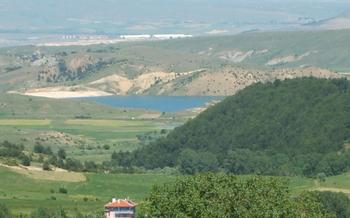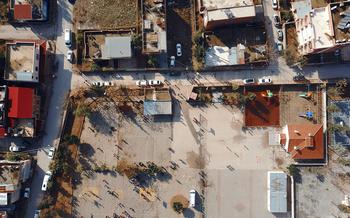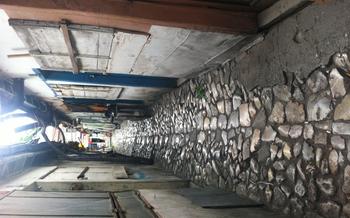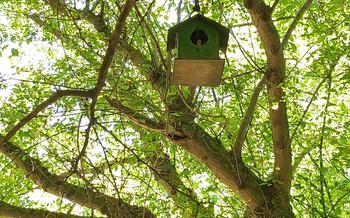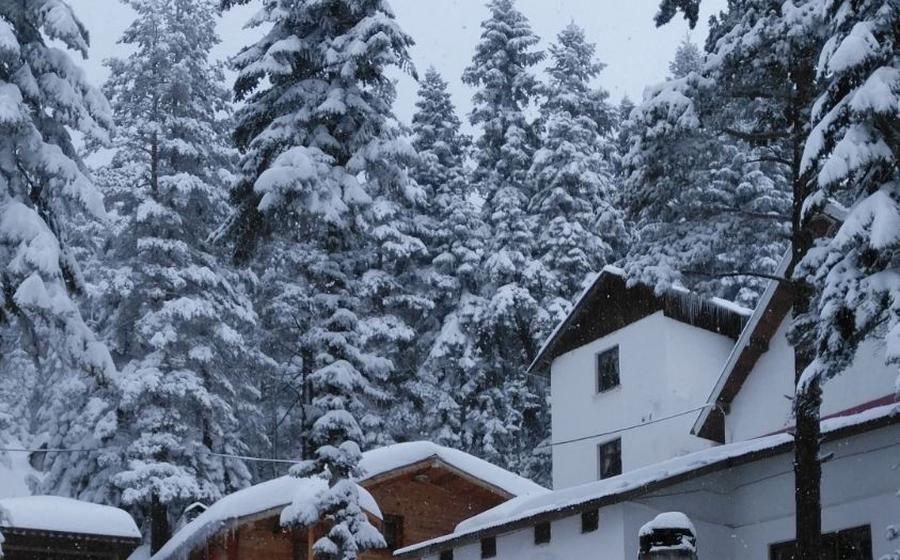
Eskipazar Historic Wooden Mosque
- History of the Eskipazar Historic Wooden Mosque
- Architectural Features
- Significance as a Cultural Heritage Site
- Religious Importance
- Personal Anecdote
- Visitor Experience
- Guided Tours
- Prayer Timings
- Dress Code
- Photography and Videography
- Accessibility
- Local Crafts and Souvenirs
- Cultural Events and Festivals
- Local Cuisine
- Insider Tip: Embracing the Essence of Eskipazar
History of the Eskipazar Historic Wooden Mosque
In the heart of Çankırı, Turkey, stands the Eskipazar Historic Wooden Mosque, a testament to the region's rich cultural heritage. Constructed during the Ottoman Empire in the 17th century, this unique mosque holds a special place in the community's history. Built entirely of wood, without the use of nails or screws, it represents an extraordinary feat of craftsmanship and architectural ingenuity. The mosque's wooden structure not only showcases the skills of its builders but also symbolizes the harmonious coexistence of nature and spirituality.
Throughout its existence, the mosque has served as a central hub for religious devotion, community gatherings, and cultural exchange. It has witnessed the ebb and flow of history, standing resilient against the test of time. Locals hold the mosque in high esteem, considering it a symbol of their faith and cultural identity. Legends and anecdotes passed down through generations add to the mosque's mystique, creating a captivating narrative that intertwines history with folklore.
Architectural Features
The Eskipazar Historic Wooden Mosque stands as a testament to the ingenuity and craftsmanship of Ottoman architecture. Its unique wooden structure, a rarity among mosques, sets it apart as a remarkable sight to behold. The mosque's exterior is adorned with intricate carvings and embellishments, showcasing the intricate artistry of its builders. Inside, visitors are greeted by a warm and inviting atmosphere, with a unique interior design that reflects the mosque's religious and cultural significance. The mosque's layout is designed to promote a sense of community and togetherness, with a central prayer hall surrounded by smaller rooms for contemplation and study. The mosque's wooden minaret, rising gracefully into the sky, serves as a symbol of faith and devotion, echoing the call to prayer across the town.
Significance as a Cultural Heritage Site
The Eskipazar Historic Wooden Mosque stands as a testament to the region's rich cultural heritage, earning recognition as a significant cultural and historical site. Its unique wooden construction and exceptional architectural features have garnered widespread appreciation and admiration. Efforts have been dedicated to preserving and restoring the mosque's original elements, ensuring that its historical essence remains intact. Moreover, the mosque plays a pivotal role in promoting cultural tourism, inviting visitors from around the world to explore and appreciate its architectural and historical significance.
One remarkable restoration project stands as a testament to the successful preservation of the mosque's authenticity. In 2010, a team of skilled artisans and craftsmen embarked on a meticulous restoration process, meticulously repairing and restoring the mosque's wooden structure, intricate carvings, and embellished elements. Using traditional techniques and materials, they breathed new life into the mosque, ensuring its continued existence as a symbol of the region's cultural heritage. The successful completion of this project not only preserved the mosque's historical integrity but also reinforced its status as a cultural landmark.
Religious Importance
The Eskipazar Historic Wooden Mosque stands as a beacon of religious devotion and spiritual guidance for the local Muslim community. Constructed during the Ottoman Empire, a time when religious faith played a pivotal role in society, the mosque has deep symbolic and cultural significance. It serves as a place of worship, a gathering space for communal prayers, and a symbol of the region's rich Islamic heritage.
Beyond its function as a house of prayer, the mosque contributes to the spiritual and cultural identity of the region. Its distinctive wooden architecture, intricate carvings, and harmonious ambiance create a serene and uplifting atmosphere that fosters contemplation and spiritual connection. The mosque's presence reminds the local community of their shared religious beliefs, values, and traditions, strengthening the bonds that unite them.
For visitors, attending a prayer service at the Eskipazar Historic Wooden Mosque can be a deeply moving and enriching experience. The rhythmic chanting of prayers, the collective devotion of the worshippers, and the sense of tranquility that permeates the air create a profound spiritual atmosphere. It is an opportunity to witness the mosque's role as a spiritual sanctuary and gain a glimpse into the religious practices and beliefs of the local community.
Personal Anecdote
During my travels, I had the privilege of attending a prayer service at the Eskipazar Historic Wooden Mosque. As a non-Muslim visitor, I was welcomed with warmth and respect by the local worshippers. I was offered a place to sit discreetly at the back of the mosque, where I could observe the proceedings without causing any disruption.
As the prayers began, I was struck by the sense of peace and devotion that filled the room. The worshippers stood shoulder to shoulder, reciting verses from the Quran in unison. Their voices resonated through the wooden interior, creating a harmonious and uplifting melody. I felt a deep sense of reverence and respect for the faith and traditions of the local community.
After the prayers, I had the opportunity to speak with some of the worshippers. They shared their stories of faith, their experiences attending the mosque, and the importance of the mosque in their lives. Their stories reminded me of the power of religious belief and the role that sacred spaces play in fostering community and spiritual well-being.
Visitor Experience
The Eskipazar Historic Wooden Mosque is not just a religious site; it is also a cultural and architectural wonder that offers a unique visitor experience. The awe-inspiring visual impact of its wooden structure, with its intricate carvings and embellishments, is sure to leave you breathless. As you step inside, you will be enveloped in a sense of tranquility and reverence. The mosque's unique interior design and layout, with its rows of wooden pillars and the beautiful mihrab (prayer niche), create an atmosphere of spirituality and devotion.
In addition to admiring the mosque's architecture, visitors can also learn about its history and cultural significance. Informative plaques and displays provide insights into the mosque's construction, its role in the community, and its symbolic importance. Guided tours are also available, offering visitors a deeper understanding of the mosque's unique features and its place in Turkish history.
One of the highlights of visiting the Eskipazar Historic Wooden Mosque is the opportunity to witness the daily life of the local Muslim community. During prayer times, the mosque comes alive with the sounds of worshippers reciting verses from the Quran. It is a truly moving experience to observe the devotion and spirituality of the local people as they gather to pray together.
Anecdote:
On my first visit to the mosque, I was particularly struck by the sense of community and inclusivity. As a non-Muslim visitor, I was welcomed with open arms by the locals. They invited me to join them for tea and shared stories about their lives and traditions. I left the mosque feeling enriched and inspired by the warmth and hospitality of the people I had met.
Guided Tours
For a more in-depth exploration of the mosque's history and architectural intricacies, guided tours are available to visitors. Knowledgeable guides provide insights and explanations, bringing the mosque's story to life. Thematic tours focus on specific aspects, such as the mosque's construction techniques or its role in the community.
Insider Tip: Inquire about specialized tours tailored for photography enthusiasts or architecture students. These tours offer unique perspectives and opportunities to capture stunning images or gain a deeper understanding of the mosque's design.
Prayer Timings
The Eskipazar Historic Wooden Mosque, like all mosques, serves as a place of worship for the local Muslim community. Visitors should be respectful of this and observe proper etiquette during prayer times.
Generally, mosques are open to non-Muslims outside of prayer times, but it is important to be mindful of the designated areas and facilities for visitors during prayers. These areas are usually located in a separate section of the mosque or in a designated prayer room.
It is essential to dress modestly and cover your shoulders and knees when visiting the mosque. If you do not have appropriate clothing, headscarves or shawls are often available for visitors to use.
During my visit, I had the opportunity to witness a prayer service and was struck by the sense of tranquility and devotion in the air. The worshippers were deeply engaged in their prayers, and I felt a sense of respect and awe as I observed them.
After the prayers, I had the chance to interact with some of the local worshippers. They were incredibly welcoming and friendly and shared their insights into the mosque's history and significance. It was a truly enriching and memorable experience.
Dress Code
Out of respect for the mosque's religious significance, visitors are expected to dress appropriately when visiting. Modest attire is encouraged, covering shoulders and knees. For women, covering the hair is also customary. If you find yourself underdressed, headscarves or shawls are usually available for visitors to borrow. I recall an instance when I visited the mosque without realizing the dress code. Despite my initial embarrassment, the locals were incredibly kind and understanding. They offered me a shawl to cover my shoulders, and I was able to enjoy my visit without feeling uncomfortable. Their graciousness left a lasting impression on me, reminding me of the importance of respecting local customs and traditions.
Photography and Videography
Permitted with consideration for the mosque's sanctity, photography and videography offer visitors a chance to capture the mosque's captivating beauty. Respectful photography is encouraged, ensuring not to disturb worshippers or disrupt the serene atmosphere.
The intricate carvings, vibrant colors, and unique architectural details of the Eskipazar Historic Wooden Mosque make it a photographer's paradise. The play of light and shadow creates stunning compositions, especially during the golden hour.
While capturing the mosque's essence, visitors should be mindful of their surroundings, avoiding using flash photography or tripods that may obstruct others' views. It is also essential to seek permission from the mosque's caretakers or guides before setting up any equipment.
The mosque's management encourages visitors to share their experiences through photography and videography, provided they adhere to these guidelines. By doing so, they contribute to preserving the mosque's legacy and showcasing its splendor to a wider audience.
Insider tip: For truly breathtaking shots, visit the mosque during the golden hour, when the warm light casts a magical glow on its wooden structure.
Accessibility
The Eskipazar Historic Wooden Mosque is committed to ensuring accessibility for all visitors. Wheelchair ramps and designated areas for visitors with disabilities are available to facilitate ease of movement within the mosque. Assistance is provided to those who require it, ensuring a comfortable and inclusive experience for all. Information on accessible transportation options to reach the mosque is readily available, making the journey to this sacred site as smooth as possible.
In a personal anecdote, I recall a heartwarming experience with the mosque's staff. During my visit, I noticed a family with a young child in a wheelchair. The staff members went above and beyond to accommodate their needs, providing a comfortable space for the child to pray and offering assistance throughout their visit. The family expressed their gratitude for the kindness and inclusivity they experienced, making their visit to the mosque a truly memorable one.
Local Crafts and Souvenirs
The Eskipazar Historic Wooden Mosque is situated in the heart of a vibrant artisanal district, where visitors can immerse themselves in the local culture and traditions. The surrounding streets are lined with charming shops and workshops, showcasing a diverse range of handmade crafts and souvenirs. From intricate carpets and textiles to finely crafted pottery and woodwork, there's something for every taste and budget.
By purchasing these unique items, visitors not only support local craftsmen but also contribute to the preservation of Turkey's rich cultural heritage. Each piece tells a story, embodying the skills and artistry passed down through generations. Whether it's a hand-painted ceramic plate, a delicately woven rug, or a beautifully carved wooden trinket, these souvenirs serve as tangible reminders of the region's rich cultural tapestry.
One particularly memorable experience I had was stumbling upon a hidden gem of a shop tucked away in a narrow alleyway. The shelves were adorned with an eclectic collection of handmade goods, from colorful embroidered bags to intricately designed jewelry. I couldn't resist purchasing a pair of hand-painted earrings, each featuring a unique pattern inspired by traditional Turkish motifs. The shopkeeper, a friendly elderly woman, beamed with pride as she explained the significance of the designs. It was a small purchase, but it carried with it a sense of connection to the local culture and a story that I would cherish for years to come.
Cultural Events and Festivals
The Eskipazar Historic Wooden Mosque, nestled within the vibrant community of Çankırı, serves as a backdrop for various cultural events and festivals that pay homage to the region's rich traditions and heritage. These events provide visitors with an immersive experience, allowing them to delve into the local culture and connect with the community.
One of the most significant events is the annual Eskipazar Wooden Mosque Festival, a celebration that brings together locals and tourists alike. This festival showcases the mosque's architectural splendor, with guided tours, exhibitions, and workshops highlighting its historical significance. Visitors can witness traditional Turkish music performances, folk dances, and culinary demonstrations, immersing themselves in the vibrant atmosphere.
Participating in these cultural events and festivals offers a unique opportunity to gain insights into local traditions, customs, and the deep-rooted connection between the community and the mosque. Whether it's savoring the flavors of regional delicacies, witnessing the grace of traditional dances, or engaging with the friendly locals, visitors are sure to leave with a profound appreciation for the cultural heritage of Çankırı.
Local Cuisine
After exploring the spiritual and architectural wonders of the Eskipazar Historic Wooden Mosque, tantalize your taste buds with the delectable flavors of traditional Turkish cuisine. The mosque's location within a vibrant artisanal district offers an array of restaurants and cafes where you can savor the region's culinary delights.
Indulge in the succulent Çankırı kebab, a specialty of the region, prepared with tender lamb meat grilled to perfection. For a taste of local ingenuity, try mantı, small dumplings filled with minced meat and topped with yogurt and garlic sauce. If you prefer a hearty and comforting dish, opt for keşkek, a traditional Turkish stew made from wheat, meat, and chickpeas.
The fusion of flavors and culinary influences in the region is a testament to its rich history and cultural diversity. Experiment with various dishes and savor the unique blend of spices and herbs that characterize Turkish cuisine. Don't forget to accompany your meal with a refreshing glass of ayran, a traditional yogurt drink, or indulge in the sweetness of güllaç, a delicate dessert made from layers of filo pastry soaked in milk and topped with pomegranate syrup.
As you relish the delectable offerings, take a moment to engage with the locals and learn about their culinary traditions. Ask about their favorite dishes, family recipes, and the significance of food in their culture. Embrace the opportunity to immerse yourself in the local lifestyle and create lasting memories that extend beyond the mosque's walls.
Insider Tip: Embracing the Essence of Eskipazar
To fully embrace the charm and authenticity of Eskipazar and its historic wooden mosque, consider planning your visit during the shoulder seasons of spring or fall. During these periods, the town exudes a tranquil ambiance, free from the throngs of summer tourists. This allows you to immerse yourself in the mosque's serene atmosphere and explore the town's hidden gems at your own pace.
Engage with the friendly locals, who are always eager to share their personal stories and insights about the mosque and its significance in their lives. Ask about their favorite spots in the town, their cherished memories associated with the mosque, or any local legends or anecdotes that have been passed down through generations. These interactions will provide you with a deeper understanding of the cultural and historical context of the mosque and the community it serves.
Take time to appreciate the tranquility of the mosque's surroundings. Stroll through the narrow cobblestone streets, admire the traditional Ottoman-style houses with their overhanging balconies, and soak in the town's timeless charm. Visit the nearby Eskipazar Bazaar to witness the vibrant local culture and support local artisans by purchasing unique souvenirs and handicrafts.
Remember, the true essence of the Eskipazar Historic Wooden Mosque lies not only in its architectural grandeur but also in its role as a living testament to the town's rich history and vibrant community. By embracing the insider tips shared here, you'll gain a deeper appreciation for this remarkable landmark and create lasting memories of your visit to Eskipazar.


